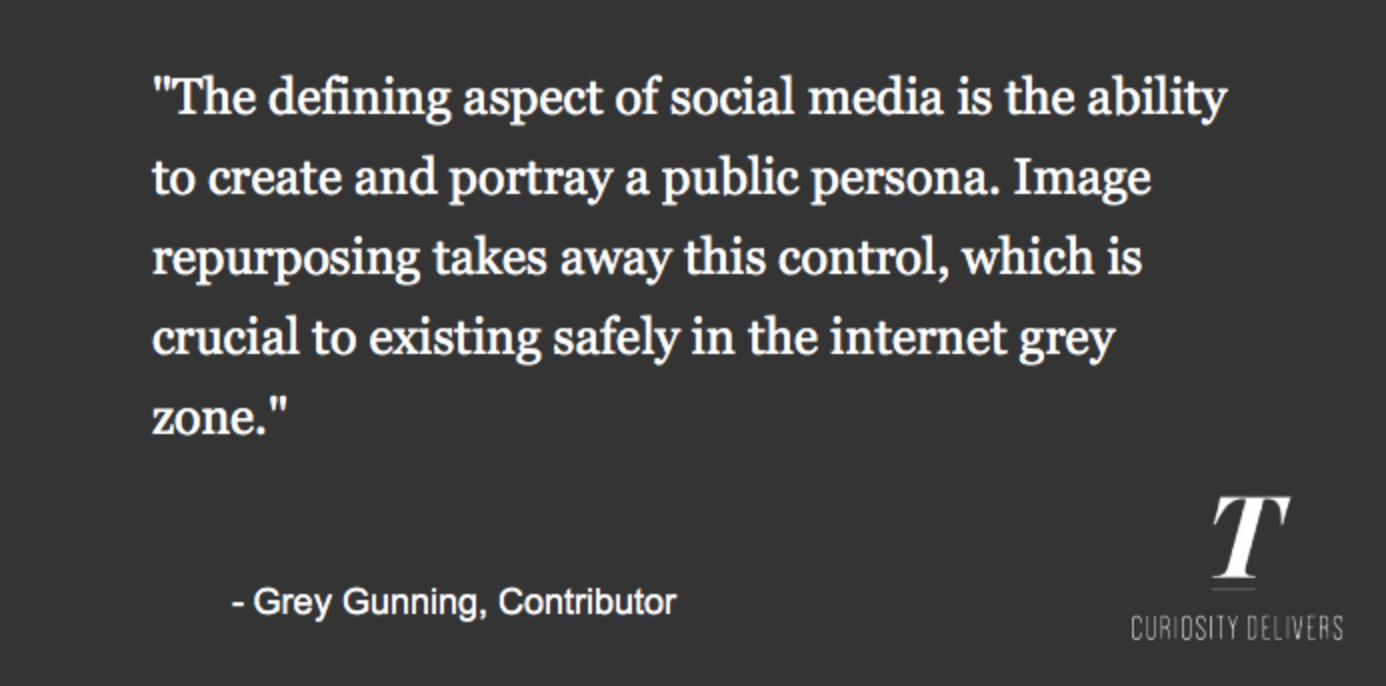MTL Blog is a normally benign clickbait website known for publishing articles such as “The Whole Foods Market Close to Montreal You Have To Road Trip To ASAP.” Recently, however, the blog moved away from think pieces on snow and poutine, and engaged in truly tasteless journalism. Two of the pieces in question, which have been retracted, were titled “12 of the Hottest Concordia University Guys on Instagram” and “18 of the Hottest Mcgill Girls on Instagram.” The articles featured photos linked from the Instagram accounts of 30 students without their consent. The existence of these articles—though brief—was exploitative because it violated the control that Instagram users have over their own content. MTL Blog neglecting to ask users for consent is a failure in ethical journalism.
Instagram images belong to the users who put them up, but the public nature of the website allows these images to exist somewhere between the public and private domains. Because anyone can view a public account, an image can be a simultaneous expression of a user’s private life and a part of the public domain. On the internet, theft is not easy to define and even harder to punish. Social media users might find that they do not have the grounds to take legal action against those who would repurpose their images.
Even highly public cases of image theft fall into this grey zone. In 2015, artist Richard Prince’s “New Portraits” exhibition at the Gagosian Gallery in New York City repurposed images from personal Instagram accounts—primarily, sexually suggestive photos of young women. By removing the captions written by the account users and replacing them with his own, he also removed the user’s ability to dictate the portrayal of his or her image. Just like MTL Blog, Prince placed the images in a new context, robbing the users of their control.
Applications like Instagram enable people to put their lives on display, but this does not mean that the users featured in the MTL Blog articles or Prince’s exhibition invited their own exploitation. Such an interpretation would ignore the fact that social media is as bound by ethics as anything else. Social media is used to engage with a peer group: When university students put images of themselves online, it is for themselves and their ‘public’—a wider network of people they may not know personally. It is not an invitation for MTL Blog to swoop in and repurpose the image without permission. Although today’s youth are seemingly comfortable existing in public spheres such as Instagram—posting photos that anyone can see—the issue here is not publicity, but control.
The appropriation of internet content—especially personal images of a user—can have frightening repercussions for the original poster. Ruby Mae Landry, one of the girls featured in “The 18 Hottest McGill Girls on Instagram,” said in an interview with the CBC that she received unsolicited Facebook messages from men saying they “saw [her] on the blog” after the article’s publication. On Instagram, a user can control their content output and block other users. Once an image is taken out of the Instagram context, the user loses these safeguards. The most worrying implication of the added visibility created by artists like Prince and media platforms like MTL Blog is that it has the potential to make young people, especially women, susceptible to unwanted and even dangerous advances. Decisions like these are callous. An individual’s safety is more important than an artist’s career or the number of pageviews on a website.
Social media has changed the way people express their identities: The defining aspect of social media is the ability to create and portray a public persona. Image repurposing takes away this control, which is crucial to existing safely in the internet grey zone. All MTL Blog had to do was ask. It is a disservice to the online community it relies on that it did not.







